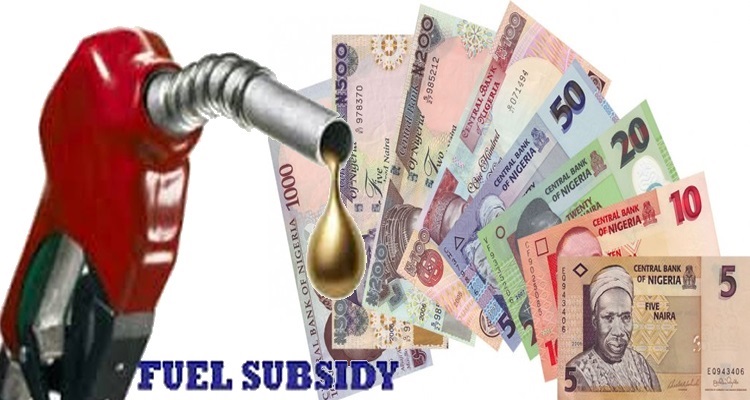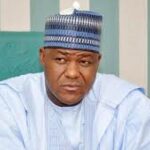As part of its valedictory resolutions,the Eighth Senate expressed reservations over the payment of N11 trillion in six years to fuel importers under the subsidy regime. It was reacting to a report by the Senate Committee on Petroleum Downstream Sector. Among the lament of the Senators was that the executive arm was paying the subsidy claims of some oil marketers even before the National Assembly appropriated the money for it.
Chairman of the committee Senator Kabiru Marafa, who disclosed the payment, also said that due to the scarcity of forex during much of the period of payment,government allowed the oil marketers to source forex outside the official window being the approved rate of the Central Bank of Nigeria [CBN] to enable them meet the country’s demand for refined fuel. Meanwhile the information came just after the Senate had approved another N129 billion for subsidy payment to 67 oil marketers.
Government subsidy for domestic consumption of refined fuel, \ under various guises, has been a sore issue in the Nigerian political terrain for many years, with successive governments seemingly transfixed over it. This is in spite of growing evidence that it is hardly serving the purpose for which it was intended. Like previous administrations, the present Buhari Administration seems to be confronted with indecision over which way to go with respect to the retention or removal of fuel subsidy. In all cases the governments justify their retention of this drainpipe by arguing that it is intended to protect the poor.
As government’s own figures have pointed out, the benefit that accrues to the poor from trillions in subsidy is relatively little. Submissions by the World Bank and other authorities indict the subsidy programs as being more beneficial to the rich than to the poor. In the Nigerian situation in particular, the oil subsidy regime had transformed into a grand platform for stealing public funds in broad daylight. Evidence from several investigations by both the National Assembly and the executive arm have demonstrated clearly the scope of fraudulent activities associated with the operation of the oil subsidy regime, leading to genuine fears that the economy stands to be crippled if the practice is not checked.
Continuation of the subsidy regime in the face of the country’s installed and potential oil refining capacity have made the importation of refined fuel products unjustifiable. Nigeria has four refineries, two in Port Harcourt, one in Warri and another one in Kaduna. Together they have a total installed capacity to refine 450,000 barrels of crude oil per day. At optimum operational status these would produce enough to meet the country’s fuel needs. However, they are presently in a comatose state, leaving the country at the mercy of imported fuel with its catalogue of woes of which the discredited subsidy regime is just one.
In the circumstances, the country now has a saving grace in the upcoming Dangote Refinery, due to go into operation in 2020, with a daily production capacity of 750,000 barrels. Yet, the Dangote Refinery, which is built on the Atlantic coast and is oriented towards export of refined fuel and possible import of crude oil as well, would not ameliorate the national situation as long as government insists on a controlled internal fuel price.
This is where the report by Senator Marafa’s Committee provides a good take-off point for the newly inaugurated Ninth National Assembly to work towards a final resolution of the country’s subsidy headache. Since the subsidy regime, presently called NNPC “under recovery,” diverts funds from other vital areas of the country’s public life, the earlier it is addressed, the better for the country.
Nigeria’s fuel subsidy conundrum is totally unjustified. As a major crude oil producer,Nigeria should actually be a hub of oil refining for West and Central Africa. This should be a cardinal item on the Legislative Agenda of the Ninth National Assembly, now that it has taken off.

 Join Daily Trust WhatsApp Community For Quick Access To News and Happenings Around You.
Join Daily Trust WhatsApp Community For Quick Access To News and Happenings Around You.


